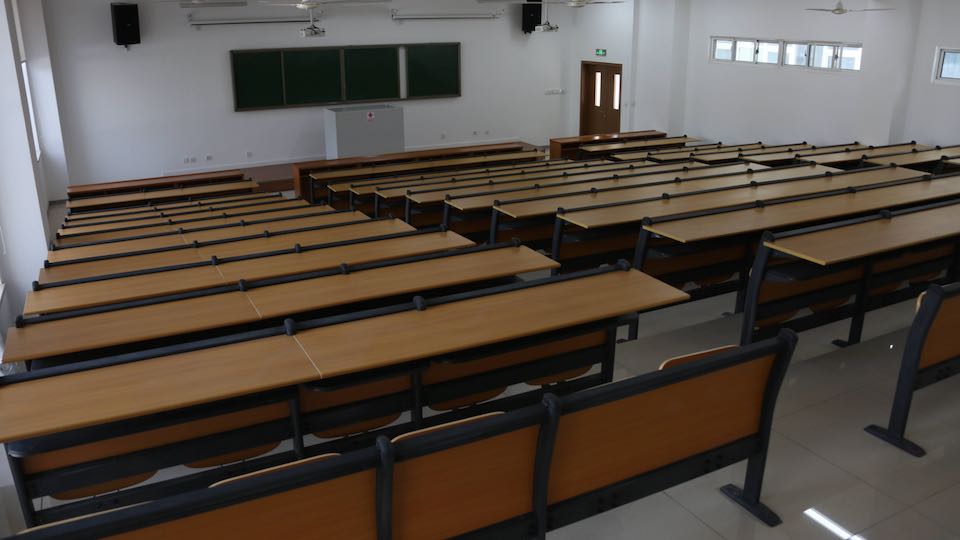Afghan women protest university ban

Some women in Afghanistan apparently do not want to bow to the radical Islamic Taliban’s ban on universities. Hundreds of women reportedly gathered Wednesday near the university in Kabul, whose gates have been closed to all women since Tuesday. Despite the current winter vacations, the universities have so far been open to employees and students.
Armed security forces reportedly prevented the women from entering the campus. On Tuesday, the Taliban had banned all Afghan women from accessing higher education. Via a government statement, they directed all private and public universities to “implement the said decree for suspension of education for women until further notice.”
The announcement was shared by the Ministry of Higher Education and signed by Acting Minister Sheikh Neda Mohammed Nadim. No justification for the decision was apparently shared. Three months ago, entrance exams for Afghan universities were still underway, and a large number of women and girls had participated.
The new restrictions on women sparked international protest on Tuesday. During a U.N. Security Council meeting on Afghanistan, the United States and Britain condemned the Afghan government’s decision. “The Taliban cannot expect to become a legitimate member of the international community until they respect the rights of all Afghans, particularly human rights and the fundamental freedom of women and girls,” U.S. Representative Robert Wood said.
U.N. Secretary-General Guterres spoke of “devastating consequences for the future of the country.” U.N. High Commissioner for Human Rights Volker Türk said, “The right of women and girls to education of any level without discrimination is a fundamental right that cannot be questioned.” Human Rights Watch (HRW) called the ban a “shameful decision.”
School education also restricted
After the Taliban took power last year, new rules had already been introduced at universities. Women and men had to be strictly separated; they now had separate entrances and classrooms. Only other women or older men were allowed to teach female students. Universities also had strict dress codes for female students.
All girls’ schools from seventh grade onward have also been closed since the takeover. In March, the Ministry of Education announced that it would reopen schools for girls. However, within hours of the reopening, the rulers had retracted their announcement (in German) and the schools remained closed. Human rights organizations had criticized the move and accused the government of deliberate cruelty.
German politicians react
The education ban also triggered reactions in Germany. Foreign Minister Annalena Baerbock (Greens) wrote on Twitter, “By destroying the future of girls and women in Afghanistan, the Taliban decided to destroy their own country’s future.” However, she added, they will not succeed in “making women invisible.”
The foreign minister announced that she would put the Afghan education ban on the agenda of the G7 group. Germany still holds the presidency in this group until the end of the year.
“Educated women are apparently the greatest threat to the Taliban’s inhuman regime,” German Education Minister Bettina Stark-Watzinger (FDP) wrote on Twitter. This decision, she said, is a crime against all girls and women and also against Afghanistan’s future viability. “It must not be allowed to stand.”
Meanwhile, the organization Human Rights Watch called on Afghanistan’s donor countries and the international community to speak “forcefully” with the Taliban about the lasting damage such decisions have on women and girls and on all Afghans.
Women excluded from public life
Women and girls are now largely excluded from society; they are no longer allowed to travel without a male escort and must always veil their faces in public. Recently, women in Kabul have also been banned from visiting public parks and gyms.
Islamists have also released thousands of men (in German) convicted of violence against women from prisons. At the same time, shelters such as women’s shelters have been closed.
The overall human rights situation has deteriorated extremely since the takeover. Millions of people are dependent on support and food aid.
As early as 1996, when the Taliban first ruled Afghanistan, they had introduced a ban on education for girls and women. The restrictions were not lifted until they were overthrown in October 2001. (hcz)